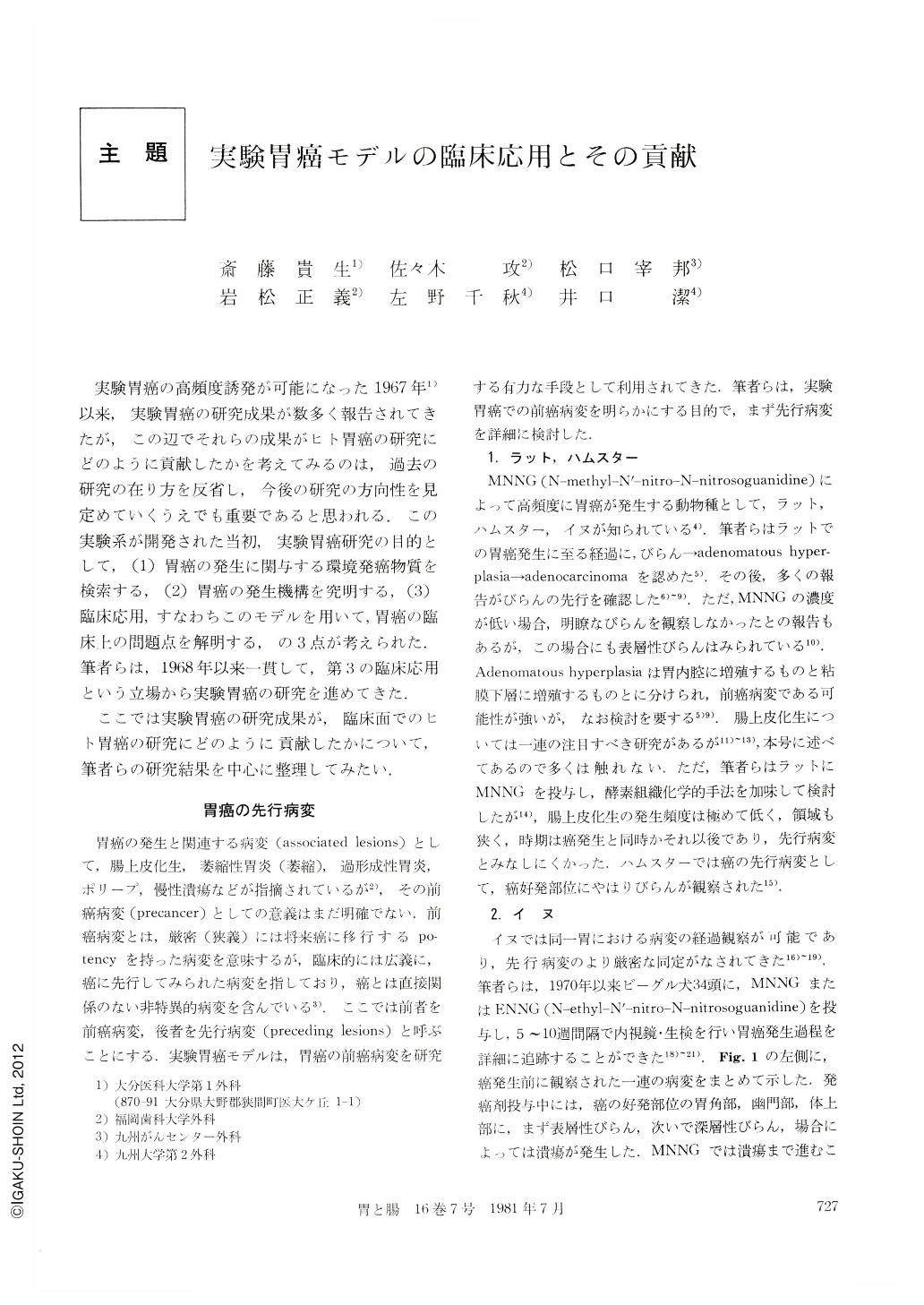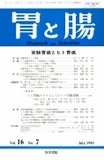Japanese
English
- 有料閲覧
- Abstract 文献概要
- 1ページ目 Look Inside
実験胃癌の高頻度誘発が可能になった1967年1)以来,実験胃癌の研究成果が数多く報告されてきたが,この辺でそれらの成果がヒト胃癌の研究にどのように貢献したかを考えてみるのは,過去の研究の在り方を反省し,今後の研究の方向性を見定めていくうえでも重要であると,われる.この実験系が開発された当初,実験胃癌研究の目的として,(1)胃癌の発生に関与する環境発癌物質を検索する,(2)胃癌の発生機構を究明する,(3)臨床応用,すなわちこのモデルを用いて,胃癌の臨床上の問題点を解明する,の3点が考えられた.筆者らは,1968年以来一貫して,第3の臨床応用という立場から実験胃癌の研究を進めてきた.
ここでは実験胃癌の研究成果が,臨床面でのヒト胃癌の研究にどのように貢献したかについて,筆者らの研究結果を中心に整理してみたい.
Experimental gastric cancer has been studied from a clinical view point and the following results were obtained;
1. As preceding lesions of experimental gastric cancer, erosion, mucosal atrophy (healed erosion), ulcer and ulcer scar, hyperplastic polyp were ob served. The relation of the preceding lesions with precancer is not clear but these lesions should be followed as precancer clinically.
2. Experimental chronic ulcer showed enhancing effect on induction of cancer in the stomach of rats by MNNG.
3. Atypical glands (dysplasia) being observed during the course of stomach carcinogenesis of dogs were devided into two types according to the histogram-patterns of nuclear DNA contents: regenerative type and cancer type. The latter is considered as a precancer.
4. From studies of micro-cancer in experimental gastric cancer, it is presumed that a well differenti ated carcinoma develops in severely eroded mucosa while a poorly differentiated carcinoma in slightly or not eroded mucosa.
5. Experimental gastric cancer was classified into three types according to the mode of growth: a) Elevated type early cancer which developed in super ficial erosion or its scar and grew slowly. b) Depressed type (Ⅱc, Ⅲ) early cancer which developed in ulcer or its scar, grew slowly with malignant cycle and progressed to advanced cancer of Borrmann 2 or 3 type. c) Depressed type (Ⅱc) early cancer which developed in deep erosion or its scar, grew rapidly and progressed to advanced cancer of Borrmann 2 or 4 type.

Copyright © 1981, Igaku-Shoin Ltd. All rights reserved.


